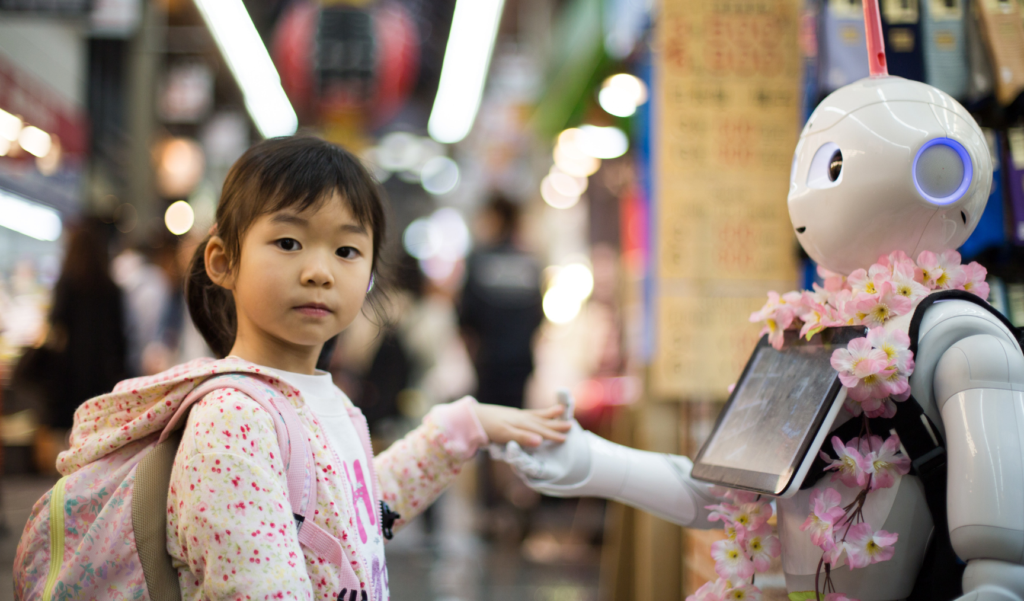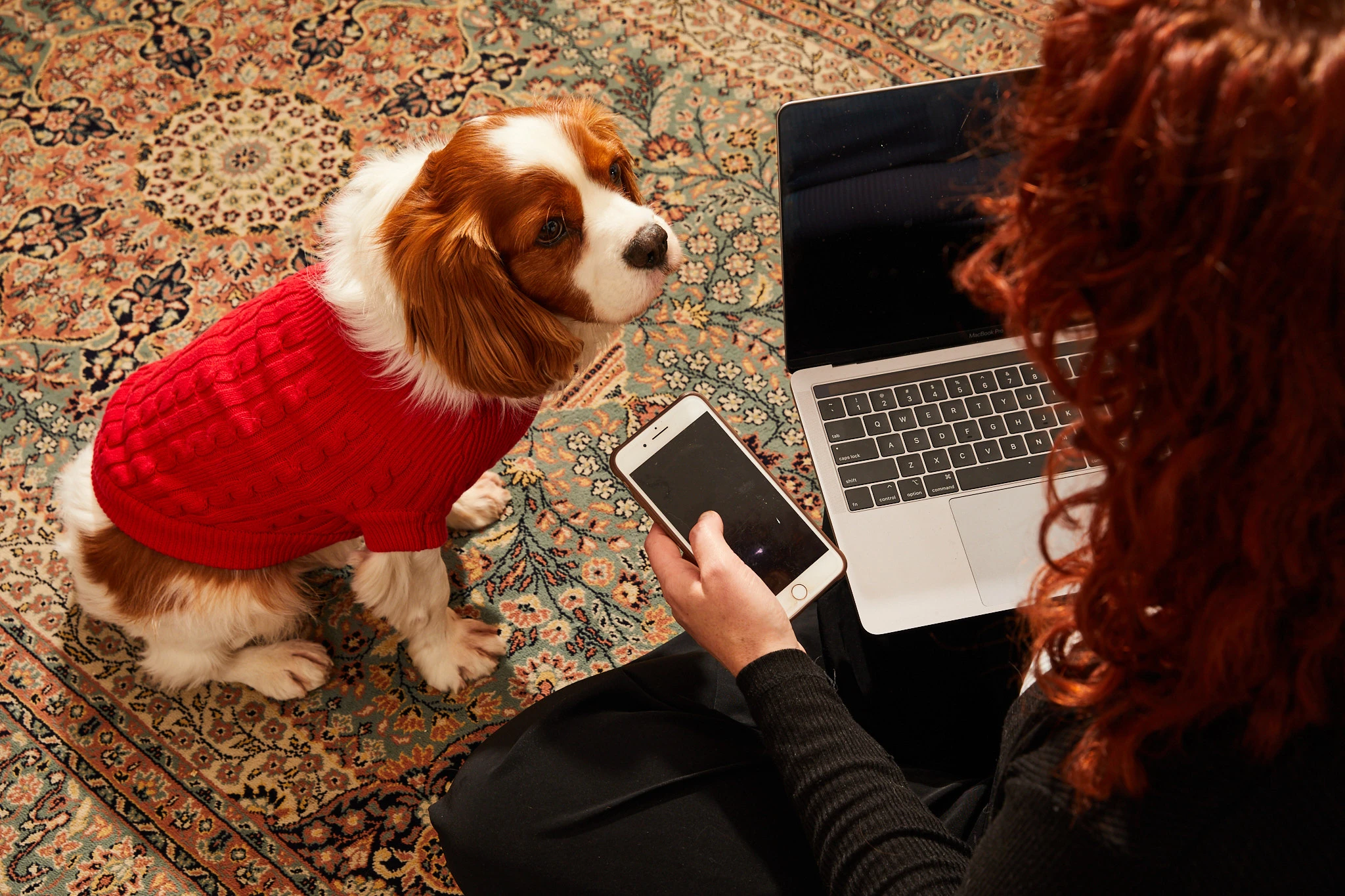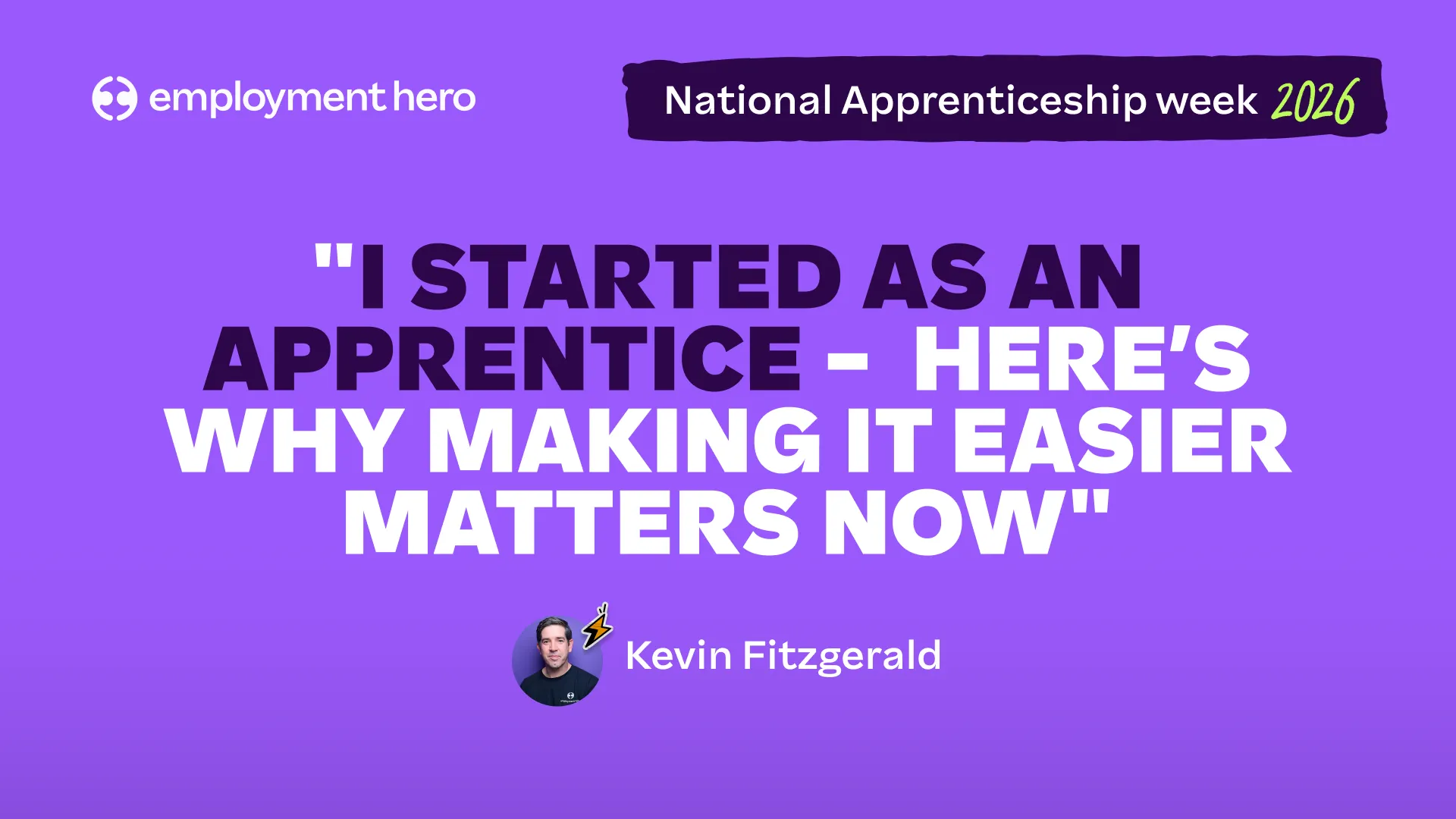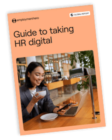AI in HR: How is artificial intelligence changing the workplace?
Discover how artificial intelligence (AI) is changing the game for human resources, and how your business can benefit from using this innovative technology.

Artificial Intelligence (AI) has recently taken the world by storm and the world of employment is no different. So how is AI in HR transforming the HR landscape? It is reshaping everything from the way we work, to the way we hire.
But what is it and what does the adoption of AI mean for businesses and HR? We’re taking a look at how it’s changing the workplace and how it could benefit your business.
What is Artificial Intelligence?
Broadly speaking, AI enables computers to mimic human cognitive functions such as learning, problem solving and decision-making. AI can be used for almost anything from generating ideas to writing code and so much more. Pretty cool, huh?
But if you think that AI is only something tech whizzes use then you might be surprised to find you are already using AI in your day-to-day life. AI voice assistants like Siri, Alexa and Google’s Gemini have been used on smartphones and computers for several years now. But their capability is continually growing and now goes beyond simply answering questions or telling jokes. Businesses are beginning to adopt AI into their models, utilising their power to streamline processes, increase efficiencies in workloads and so much more.
The importance of machine learning
When you think of AI, you should also think of machine learning. It goes hand in hand, after all. The catch is, it’s not one and the same.
But it doesn’t stop people from getting AI confused with machine learning. So if you want it in plainer English you’re not alone.
Lee Bell from Wired magazine sums up the relationship between them perfectly: “you need AI researchers to build the smart machines, but you need machine learning experts to make them truly intelligent.”
Tech for Good is an example of just how powerful the relationship between AI and machine learning can be. After all, it is where innovation in tech has made a positive change.
Take, in the workplace for example, how the use of AI and machine learning has led to increased efficiency with AI algorithms being able to analyse CVs and cover letters to identify the best candidate for the job. Just like Employment Hero’s SmartMatch, hire smarter with AI-powered talent matches. Plus, chatbots can conduct preliminary interviews so HR teams can focus on more qualified candidates.
The benefits of AI in HR
If you’re wondering how on earth AI can play a role in HR, which is such a people-centric topic—you’re not alone.
More and more companies are adopting AI because of how it continuously improves everything in the employee lifecycle, from candidate experience to employee attrition.
Are you wondering exactly how it does this? AI uses deep learning based on employee performance data. The data is gathered from performance reviews, engagement surveys and productivity metrics and organised before it is analysed to identify potential patterns and employee performance predictions.
But how can this benefit you in HR?
Increase efficiency and streamline recruitment
AI is a powerful tool that can be used to not only help shave valuable time off from mundane tasks, but help to make decisions with the hiring process, and review current and prospective employees. AI takes less time than a person when tasked to create a personalised employee experience and it reduces recruiting bias too.
Hiring the right candidate out of a sea of interviewees can be a real headache—we feel you. AI can revolutionise talent acquisition making it time efficient and effective. Take the tedious back and forth that is often involved in arranging interviews. AI eliminates this with automatic interview scheduling allowing you to focus on what really matters—connecting with great candidates.
Plus CV screening minimises unconscious bias and saves valuable time as it means you can sift through vast amounts of applications in seconds identifying the best matches for your role at speed.
Let’s break this down further.
At the end of 2021, employers received an average of 506 applications for low-skilled vacancies, and 56 applications for high-skilled vacancies.
That’s a lot of CVs to go through.
This is why it’s no surprise that hiring managers are forced to spend only 6-8 seconds per CV, resulting in the potential chance of missing an excellent candidate.
However, beyond these rose-tinted glasses, you’ll find that there are ways candidates can adapt to beat an applicant tracking system (ATS)
Psst. Employment Hero has a variety of AI powered features including Hero AI, AI support in ATS and SmartMatch.
Enhanced decision-making
When large amounts of data are analysed, patterns and trends appear and this is how you can gain valuable insights into your business. AI can not only identify these patterns but it uses the data to predict various outcomes. Clever, right?
It can help you to spot signs early on that an employee is likely to leave for example or it can flag a potential turnover risk that you could be unaware of. It does this by looking at employee performance, job satisfaction surveys, attendance records and even market trends to deliver accurate insights on talent gaps that need to be filled.
This means smarter decision-making for you, not to mention a more engaged workforce. It’s a win-win.
Improve employee experience
At Employment Hero, we’re all about a positive employee experience and we know that AI can make going to work easier, more enjoyable and more engaging. We’ve seen AI offer personalised support, automate tedious tasks and perhaps most impressively, support career growth and help employees feel valued in their career path.
When utilised correctly, AI can create a more engaging, supportive and effective working environment which means higher levels of employee satisfaction. You can use AI to provide employees with 24/7 assistance in the form of chatbots so they can access support around the clock but by far the most rewarding aspect is that AI can suggest opportunities for growth.
We’re talking about personalised learning paths by assessing an employee’s skills and highlighting career advancement opportunities that align with their interests.
Will AI mean HR professionals risk losing their jobs?
We get it, the thought of AI coming in and replacing jobs is daunting, but that’s not the reality. From a business perspective, whilst the advantages that AI brings to the table are good, it cannot replace the human touch. People have the advantage of being able to examine something in a non-binary way—the ability to look into the grey area. After all, not everything is black and white.
Take performance reviews for example. AI would be able to tell you exactly how that person has performed over the course of a month. The advantage, of course, is being able to take away a bias that a manager may unconsciously have towards the team member.
However, AI won’t be able to tell you why someone has performed well, or poorly. It can’t tell you that someone has lost a loved one and their mental health is not doing well as a result, which has impacted their work.
At Employment Hero, our view is that AI can be utilised as a productivity tool, its purpose is to drive deeper work, simplify complex tasks, and reduce manual ones. This is exactly why we need to work hand in hand with AI and not fear it because of those pesky what-ifs.
The challenges of deploying AI in HR
As there are always two sides to a coin, It’s only fair for us to look into the challenges AI brings with its powerful technology. Deploying AI can feel like a wild rollercoaster ride, exciting but filled with unexpected twists and turns.
Bias and fairness
Everyone deserves an equal shot so how can you be sure that your AI systems are fair? These systems are programmed with historical data and if this data shows any signs of bias relating to gender, age or race, this could seep into your algorithm.
Dedicate time and energy to mitigate bias by training algorithms on diverse data to ensure that your hiring processes reflect your commitment to equality. You can use an AI fairness toolkit to help identify any fairness red flags.
AI vs human judgement
We believe that human oversight is essential when deploying AI in HR.
The Trades Union Congress (TUC) believes that the use of AI in HR decision-making could lead to widespread discrimination. And that any decision made by an AI, especially in regards to whether or not an employee will be fired—must be reviewed by a person in order to provide that grey area it lacks.
One third of SMEs think that AI could make a positive impact in HR. A study posted by Capterra revealed that AI can be used to make the HR practice fairer – but only if managed by a human. According to Forbes, talent acquisition is one of the key areas where AI has the potential to grow.
Data privacy
AI systems require a high volume of data which throws up issues with data privacy. Employees may have concerns about how their data is being used and shared especially when it comes to health-related data or performance-related data.
From a legal perspective alone, AI in HR should be managed in an ethical way but also in a mindful way to maintain employee trust. Be upfront and transparent about how employee data is being used and employ data safeguards to ensure that sensitive data is protected.
How to implement AI successfully within your HR function
Implementing AI successfully is all about embracing innovation while keeping your focus on people. After all, AI should enhance the human element of HR, creating a working environment where people and technology work hand in hand.
So how do you implement it?
- Identify opportunities: Where can AI make the biggest impact for you? Is it recruitment, employee engagement or performance management? Having clear goals will pave the way to success.
- Choose the right AI tools/systems: Not every AI system will be the right fit for your company. Opt for user-friendly software that aligns with your company goals whether that’s chatbot support, candidate screening or performance tracking. There is no cookie-cutter approach.
- Fully integrated AI: It’s often beneficial for your AI to sit within your tools rather than in addition to. This ensures a more seamless user experience, reduces context switching, and allows your team to get value from AI directly within their existing workflows.
- Test solutions: Next comes your detailed test plan. This plan will be your roadmap so establish a timeline for testing activities and have your plan approved before you execute it.
- Gather feedback: Check in with your HR team, learn how the AI tools are performing, and note what works and what doesn’t.
- Train your HR team and employees for adoption: For AI to have maximum impact, your team has to know how to use it. Training is the key to making AI work for you.
- Monitor performance: Monitor the performance of your AI system in real-world scenarios to ensure it meets performance standards.
- Continual optimisation of workplace AI usage: Monitor and assess the performance of your AI systems continually gathering feedback and making adjustments along the way.
What does the future workplace look like?
We’ve already covered a lot about AI and its applications but does AI have the potential to influence the future of the workplace and bring with it a brighter future?
Absolutely. But what does this look like? Well, AI will create a more data-driven, personalised and efficient workplace. With mental health and wellbeing finally in the front of mind for everyone from the human resources department to employees themselves, it will be interesting to see how much further AI develops to be able to help in this area. AI can analyse employee data to make tailored wellness programs that resonate with each employee.
It’s not just employee wellness that will be transformed. We can expect seamless onboarding tailored to each employee, automated admin tasks, (goodbye manual paperwork) and personalised wellness initiatives. Business owners and HR professionals can create a more empowering and seamless employee experience and foster an environment that is continuously improving.
Perhaps one day in the future, we will be able to use artificial intelligence to detect burnout before it starts.
Enjoy a smoother HR service delivery from the world’s first Employment Operating System from Employment Hero
Employment Hero’s Employment Operating System is more than just a platform—we’ve taken the traditional isolated aspects of employment and integrated them into a seamless, human and AI-powered solution that empowers employers, employees and job seekers alike. Find and hire top talent with SmartMatch, seamlessly onboard new hires, automate complex payroll, drive employee engagement and more.
Our all-in-one system puts HR, payroll, hiring & more all in one place.
One system. Everything employment.
Related Resources
-
 Read more: 7 Ways Employment Hero Can Help You Retain Top Talent
Read more: 7 Ways Employment Hero Can Help You Retain Top Talent7 Ways Employment Hero Can Help You Retain Top Talent
Contents Retaining top talent in 2026 is about more than providing a positive workplace culture; employees are looking for jobs…
-
 Read more: Bradford Factor Alternatives: Practical Ways to Manage Absence in 2026
Read more: Bradford Factor Alternatives: Practical Ways to Manage Absence in 2026Bradford Factor Alternatives: Practical Ways to Manage Absence in 2026
Discover smarter absence management strategies for 2026. Explore Bradford Factor alternatives that focus on employee wellbeing and building a resilient…
-
 Read more: Government red tape risks blocking youth jobs as SMEs look to access apprenticeship scheme
Read more: Government red tape risks blocking youth jobs as SMEs look to access apprenticeship schemeGovernment red tape risks blocking youth jobs as SMEs look to access apprenticeship scheme
February 9, 2026: New Employment Hero research finds 73% of SME leaders intend to leverage new Government apprenticeship schemes following…





















